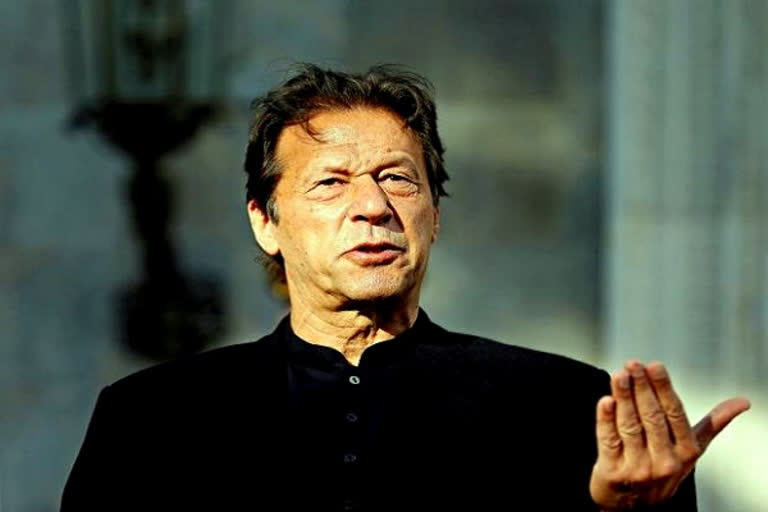Hyderabad: Regional Security Dialogue on Afghanistan chaired by India’s National Security Adviser Ajit Doval in Delhi this week has taken a centre stage after Pakistan ran parallel talks diplomacy, ‘Troika Plus’, in Islamabad.
India and other neighbouring countries, particularly those sharing borders with Afghanistan, are directly impacted by the rising security concerns after the Taliban have taken over the country. Though Pakistan and China declined Doval’s invitation for dialogue over Afghanistan, other seven countries which include Russia, Iran and five central Asian nations, have shown their interest in forming a collective security wall for the region and advocated for an inclusive government in Afghanistan together with the inclination to help Afghan people.
While India raised concerns about the Taliban takeover that has caused security issues in the region, Pakistan advocated consistently for the empowerment of the Taliban government by providing financial aid to them. Pakistan had even gone to the extent of calling the nation at the brink of economic collapse and warned that if the aid did not reach them, it would cause a humanitarian disaster.
Meanwhile, the Imran Khan-led government is striking a peace deal with Tahreek-e -Taliban(TTP) with the help of Afghan Taliban leadership. The civil society of Pakistan has raised an alarm over the general amnesty to TTP militants, who have been found involved in mass civilian killings in and across the country. Even the National Security Advisor of Pakistan and a Supreme Court Judge have come out openly against pardoning the TTP militants, citing an example of barbaric attack on the Peshawar school children.
The TTP has been primarily operating from FATA areas of Pakistan for years and their leadership is highly influenced by Afghan Taliban. This deal will expand Afghan Taliban’s reach into tribal areas of Pakistan and will pacify the storm clouds for the Imran government in Frontier areas of the country. The mobilisation and reach out is happening in New Delhi and Islamabad in equal measure. Former does it for the Taliban, and later against them.
Pakistan, which is believed to be the mentors of the Taliban, expects the group to work as their military arm with a different nationality and also aspires to have TTP under their control and command so that they can be used for anything that suits Pakistan’s agenda. Unlike groups operating from Pakistan Occupied Kashmir (PoK) like Lashkar-e-Toiba, Jaish-e-Mohammad and Harkat-ul-Ansar that serve Pakistan’s interests in and abroad, TTP has been inimical to the interests of Pakistan.
Pakistan remained in the Grey list of FATF (Financial Action Task Force) primarily for supporting the militant groups. Through Troika plus meeting, the facilitation of the Afghan foreign minister Amir Khan Muttaqi’s meeting with the new US Special envoy for Afghanistan Thomas West was a significant development for both Islamabad and Kabul. The envoy has replaced Khalilzad Zalmay, the man who struck the peace deal with the Taliban in Doha. Therefore, West will hold a vital role in Afghan issues in the coming days.
Also Read: Security dialogue on Afghan voices concern, urges nations to up aid
Imran Khan is adopting the multi-pronged approach in countering what India intends to do with regard to the Taliban takeover. It is using both diplomatic and religious means to tone down Indian narrative. The Organization of Islamic Conference (OIC) members were invited by Islamabad to visit frontier areas of PoK at the LoC (Line of Control) and its impact on divided families living along the border.
This move is apparently made to persuade the OIC members to either make some noise against India in their respective influential spaces or to come out openly in favour of Pakistan for its policies on Kashmir. A parliament member of Qatar made scathing remarks against India on the floor of the House due to Pakistan’s consistent campaign for Kashmir. The same Qatar government, that facilitated the Taliban peace deal on its soil, is now advocating for Kashmir on Pakistan’s behalf.
Subsequently, Pakistan’s move to appoint Masood Khan as its envoy for the US is quite significant. Khan, being a Mirpuri from PoK, has anti-India sentiment running in his blood since Mirpur is a place which gave birth to the secessionist movement in the name of JKLF (Jammu and Kashmir Liberation Front) in 70’s, which later turned into a ruthless militant wing. Nothing seems to be happening spontaneously across the border. Khan’s appointment as Pakistan’s envoy with a Kashmir tag is in itself a political statement. This is how Pakistan is making narratives to influence the international audience.
But before every step, Pakistan takes in the direction to co-opt its militant groups, there is always a risk of a backfire which the US has severely faced in the context of Afghanistan. They armed Afghans against the Russians, which later went against the US, and became their fierce enemies. The only concern, India and other neighbouring countries may have, is that groups like TTP and the Afghan Taliban may send their cadres across to serve Pakistan’s agenda.
Afghanistan has been a huge lesson for the US. The kind of humiliation the US government had to face by a surprise Taliban takeover and overnight withdrawal left behind massive human and military assets for simply having the habit of fishing in troubled waters. Earlier, it was the US which consolidated bases of Afghan fighters against the Russians; now it is Pakistan which trains them diplomatically.
Afghanistan can be a great lesson for India also to not unnecessarily burn its hands with fire by being either on the side of the Taliban or against them. It is always good to take a neutral position when you have zero intelligence on the ground as anticipated post Taliban-control.



